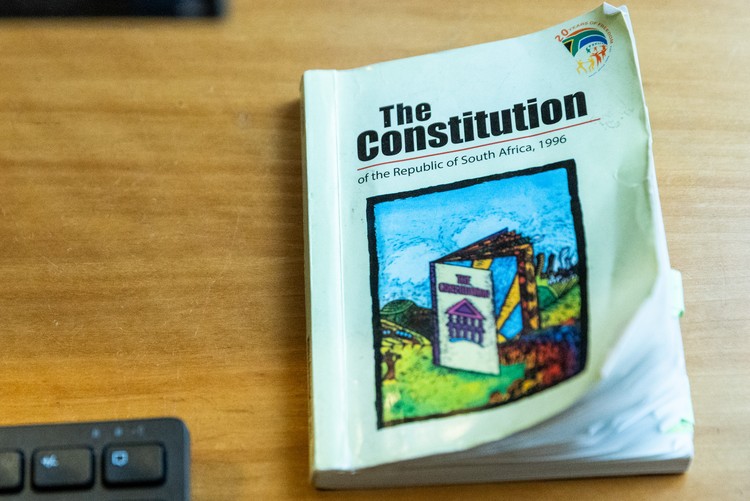Judges should respect press freedom
There have been too many prepublication gag orders in recent times
The Constitution says, at Section 16: “Everyone has the right to freedom of expression, which includes (a) freedom of the press and other media, (b) freedom to receive or impart information or ideas …”. Some members of the judiciary would do well to familiarise themselves with it. Photo: Ashraf Hendricks
South Africa is, for now, one of the few countries where journalists can work with little fear of state repression and yet have a surfeit of interesting stories, usually involving bad behaviour by state officials.
There is however a worrying exception. Judges, or more recently acting judges, have twice in the past few months, for no persuasive reason, gagged journalists from reporting stories of public interest. Also, a magistrate has barred a journalist from reporting a trial.
In March, Acting Judge Perlene Bramdhew effectively gagged an IOL journalist from reporting a story about whether a KZN company called ARTsolar was mostly manufacturing solar panels locally, as the company appeared to claim, or importing them.
In June, Acting Judge Mpumelelo Sibisi gagged Carte Blanche from airing allegations of malpractice against a cardiologist, Ntando Duze. Carte Blanche will likely eventually get the order overturned but the South African judiciary is not known for its speed.
Also in June, a Secunda magistrate, Graham Cupido, barred a Sowetan reporter from covering the fraud trial of Felani Enock Manana, an advocate, and former Old Mutual financial advisor Shadrack Manana. Nandi Ntini’s description of how this unfolded is chilling.
The first two orders described above are known as prepublication gag orders. A few years ago, our colleagues at AmaBhungane were gagged by the Gauteng High Court from reporting on the shenanigans of Zunaid Moti. In a much-acclaimed ruling, Deputy Judge President Roland Sutherland overturned the order and made it clear that there is precedent — from a 2007 Supreme Court of Appeal judgment — that the press should not be stopped in advance from reporting a story, but for highly exceptional circumstances.
The threat to freedom is not coming from the Constitutional Court, the President, Cabinet, Parliament or provincial governments. It’s not even coming from government officials. In all the above cases it’s a combination of private sector actors, zealous advocates and magistrates or acting judges with a poor understanding of the Constitution and judicial precedent.
President Cyril Ramaphosa, to his credit, has never while president used a heavy hand against his critics. The problem is he will one day be succeeded, and a future president may see the above examples of judicial overreach as a template for suppressing the media. In other words, today’s minor infringements of press freedom may become much worse in the future if they are not stamped out now.
We wish the Chief Justice could send guidance to the judiciary explaining that there is sufficient precedent that gag orders are hardly ever to be granted, and then only in the most exceptional of circumstances, especially ex parte applications (applications without notice to the journalist affected). We wish she could also inform magistrates that reporters must almost always be allowed to report on court cases. Only in exceptional circumstances, such as in camera testimony by minors in sexual assault cases, is it ok to place limited restrictions on media.
We appreciate it is beyond a Chief Justice’s power to do these things, but we hope that these conspicuously erroneous orders reach the attention of the Constitutional Court soon, so that an authoritative judgment can be delivered, issuing the clearly needed guidance that should exist.
Support independent journalism
Donate using Payfast

Don't miss out on the latest news
We respect your privacy, and promise we won't spam you.
© 2025 GroundUp. This article is licensed under a Creative Commons Attribution-NoDerivatives 4.0 International License.
You may republish this article, so long as you credit the authors and GroundUp, and do not change the text. Please include a link back to the original article.
We put an invisible pixel in the article so that we can count traffic to republishers. All analytics tools are solely on our servers. We do not give our logs to any third party. Logs are deleted after two weeks. We do not use any IP address identifying information except to count regional traffic. We are solely interested in counting hits, not tracking users. If you republish, please do not delete the invisible pixel.

